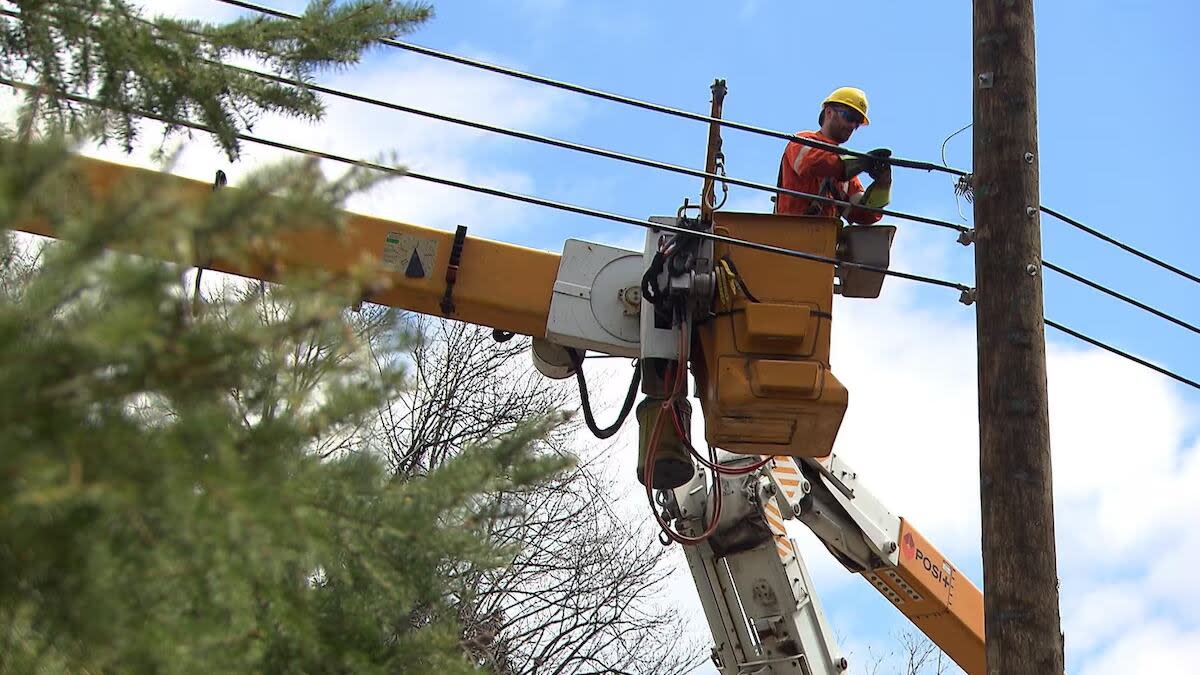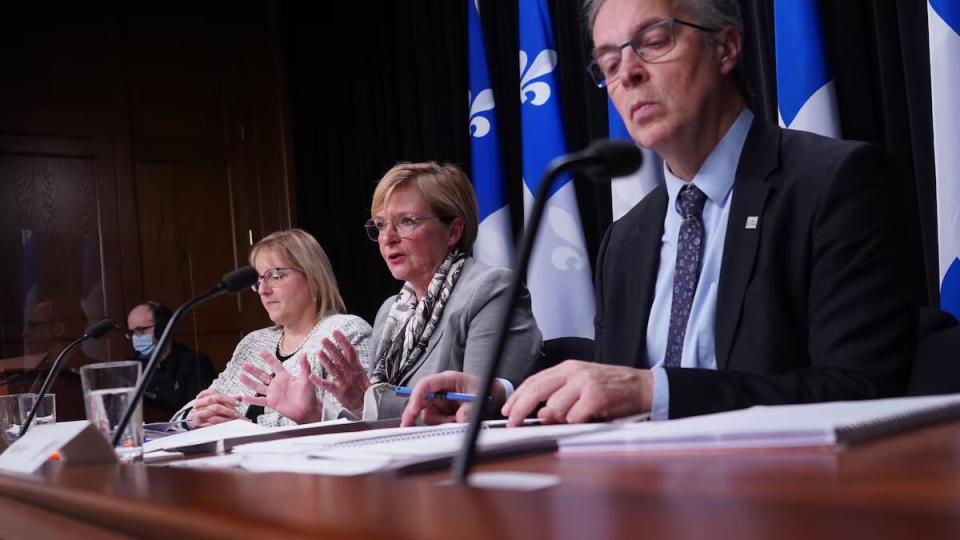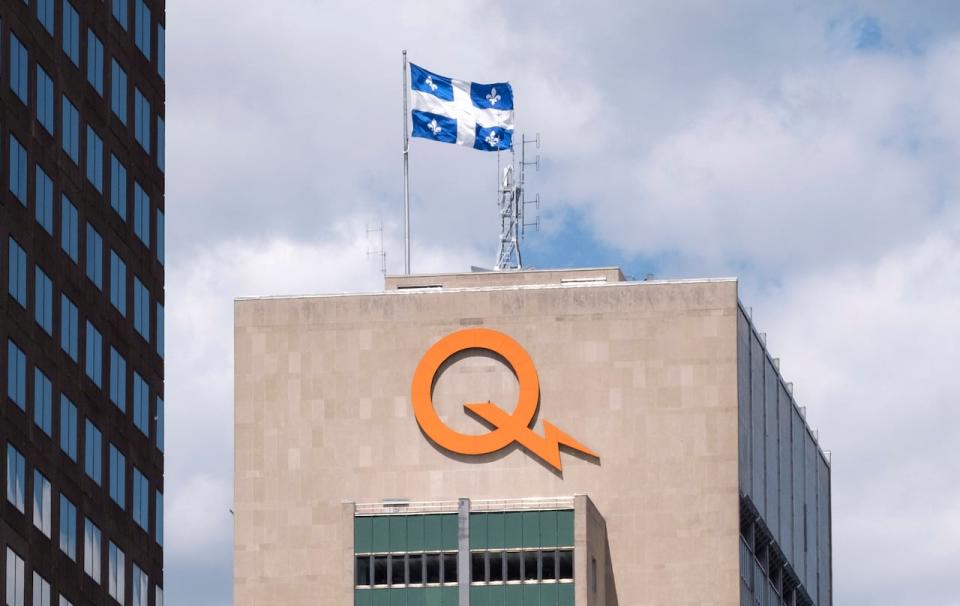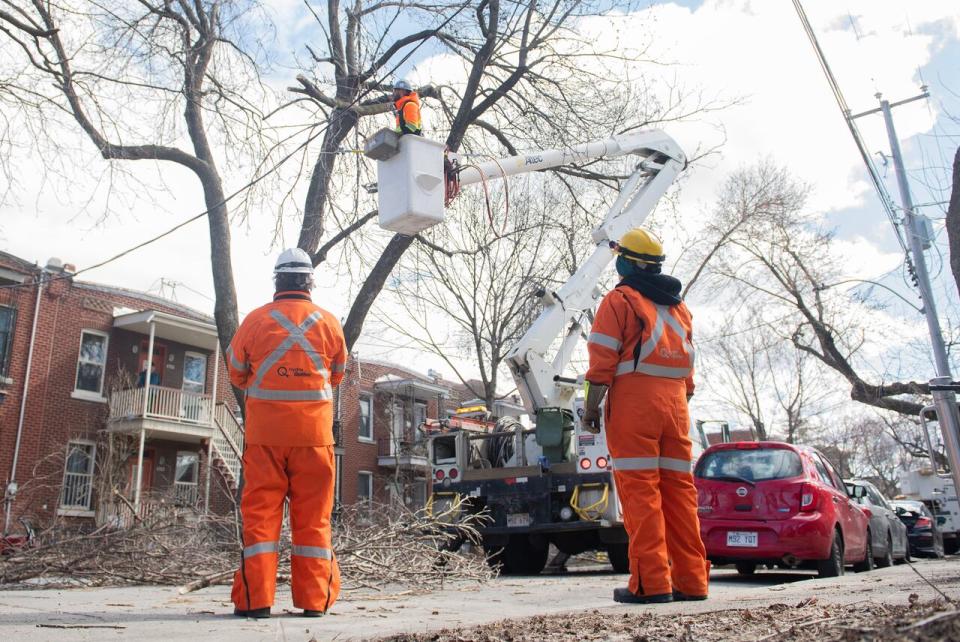Hydro-Québec's Montreal network is in 'worrisome' state: internal document

Hydro-Québec's mostly outdated strategic equipment on the island of Montreal is posing risks to the public, according to an internal document from the company.
In the document from September 2023 obtained by Radio-Canada, the Crown corporation paints a worrisome picture, saying there is an "urgent need to act on the electricity network on the island of Montreal," where there have been successive outages in recent years.
Hydro-Québec notes that its infrastructure is facing increasing risks. At least 70 per cent of the company's strategic equipment in Montreal, such as distribution stations and transformers, has exceeded its useful life.
And the situation is worse in the city than elsewhere in Quebec. More than 20 per cent of equipment is between 61 and 70 years old in Montreal, whereas in other regions, the percentage of older equipment is less than five per cent.
The Crown corporation also notes that much of its equipment is "dilapidated" and that it is increasingly difficult to work on "an overloaded network."
"We knew that the situation was serious, but we did not know that it was that serious," said Jean-Pierre Finet, an analyst at the Regroupement des organismes environnementaux en énergie (ROEE).
In the document, Hydro-Québec also writes that risks to the health and safety of its resources and the public, such as fires, explosions and outages, are high.
Hydro-Québec president and CEO Michael Sabia has mentioned several times that in the last 25 years, 2023 was one of the worst in terms of outages.
Failures, outages and interruptions
Last year, the continuity index — the annual time of service interruption per customer — reached 1,459 minutes in Montreal, an increase of 998 per cent compared to 2022. That spike is mainly due to the ice storm in the spring of 2023, which affected tens of thousands of customers, according to Hydro-Québec.
In its internal document, the Crown corporation does not rule out the possibility of a major failure of strategic equipment in Montreal's electricity network, which could have repercussions on essential services.
"Hydro is playing with fire by exceeding the useful life of assets," said Finet.
"There are even assets that have more than doubled their lifespan," he said, noting that the risk of incidents occurring increases with age.
For example, Finet said, the Montreal Metro could be plunged into a prolonged outage.

Quebec Auditor General Guylaine Leclerc, centre, criticized Hydro-Québec in her December 2022 report. (Sylvain Roy Roussel/Radio-Canada)
This observation aligns with the conclusions of a report by Quebec Auditor General Guylaine Leclerc, tabled in December 2022. She found that the reliability of the Hydro-Québec network showed "a marked decline."
The Crown corporation also finds the situation of its distribution network to be "worrisome," the internal document shows. Eleven of the 32 distribution stations were over capacity last September.
In 2020, 17 per cent of transformers were overloaded on the island, while that proportion was nine per cent elsewhere. When there is prolonged overheating, risks of failure causing a fire or explosion must be considered.
"It's difficult to conclude anything other than negligence in recent years. And all this because we wanted to keep prices low and dividends high," Finet said.
Adding to that observation is an increasing lack of electricity in Montreal, which is why the Crown corporation is struggling to meet the energy transition needs of customers on the island, says Hydro-Québec in the document.
Finet said what is even more concerning about the "alleged negligence, is that we cannot decarbonize Montreal's economy as we want because of these limitations."

Hydro-Québec says major investments are underway. (Paul Chiasson/The Canadian Press)
But Hydro-Québec was much more reassuring about the state of its network when Radio-Canada contacted the company.
Maxence Huard-Lefebvre, a spokesperson for Hydro-Québec, told Radio-Canada that major investments are underway and will continue in the coming years.
"The development plan for the island of Montreal primarily targets substations and lines with equipment that is reaching the end of its life," said Huard-Lefebvre.
Hydro-Québec has invested more than $1 billion over the last 10 years to strengthen the network in Montreal, and it will inject $3 billion more by 2035 to improve it.
However, according to internal data, conversion projects to increase voltage and capacity won't be enough to meet the network's needs.
Ongoing operations are expected to improve the situation in several boroughs of Montreal, but certain areas will remain problematic, namely the east end, the city centre and the western tip of the island.
Hydro-Québec agrees, however, that the network is older in Montreal because the neighbourhoods were built long before those in many of Quebec's regions.
"It is normal that all the infrastructure, including the electrical network, are also more recent," said Cendrix Bouchard, a spokesperson for the company.

A Hydro-Québec crew works on a power line following an ice storm in Montreal on April 7, 2023. (Graham Hughes/The Canadian Press)
However, according to Pierre-Olivier Pineau, HEC Montréal chair in energy sector management, it is disappointing to see the network in such a state.
"It's not just electricity that we're seeing this. We saw this with the Metro, the road network," he said. "Our society thinks a lot about growth and does not think about maintaining its infrastructure."
Pineau said Hydro-Québec must encourage its customers to consume less by adjusting their rates or offering more dynamic pricing.
Refusing to adapt prices to reflect the real cost of infrastructure and production "encourages overconsumption and contributes to a saturated network," he said.
A loss of expertise, an overloaded workforce
Hydro-Québec also emphasizes in the document that its workforce is often overloaded or dispatched to emergencies in Montreal, where there is currently "a loss of expertise" and "a difficulty to attract resources."
Publicly, however, Hydro-Québec says it is not worried about its workers on the ground.
In 2023, Hydro-Québec's total workforce reached 22,806 people, an increase of 22 per cent compared to 2022.
However, last April, the union of Hydro-Québec trade employees said the size of its membership had declined over 13 years. Meanwhile, the number of subscriptions increased to 4.5 million customers.
The union said the growing number of subscribers and an aging network combined with an unchanged amount of employees is a "perfect recipe for the degradation of service quality."


